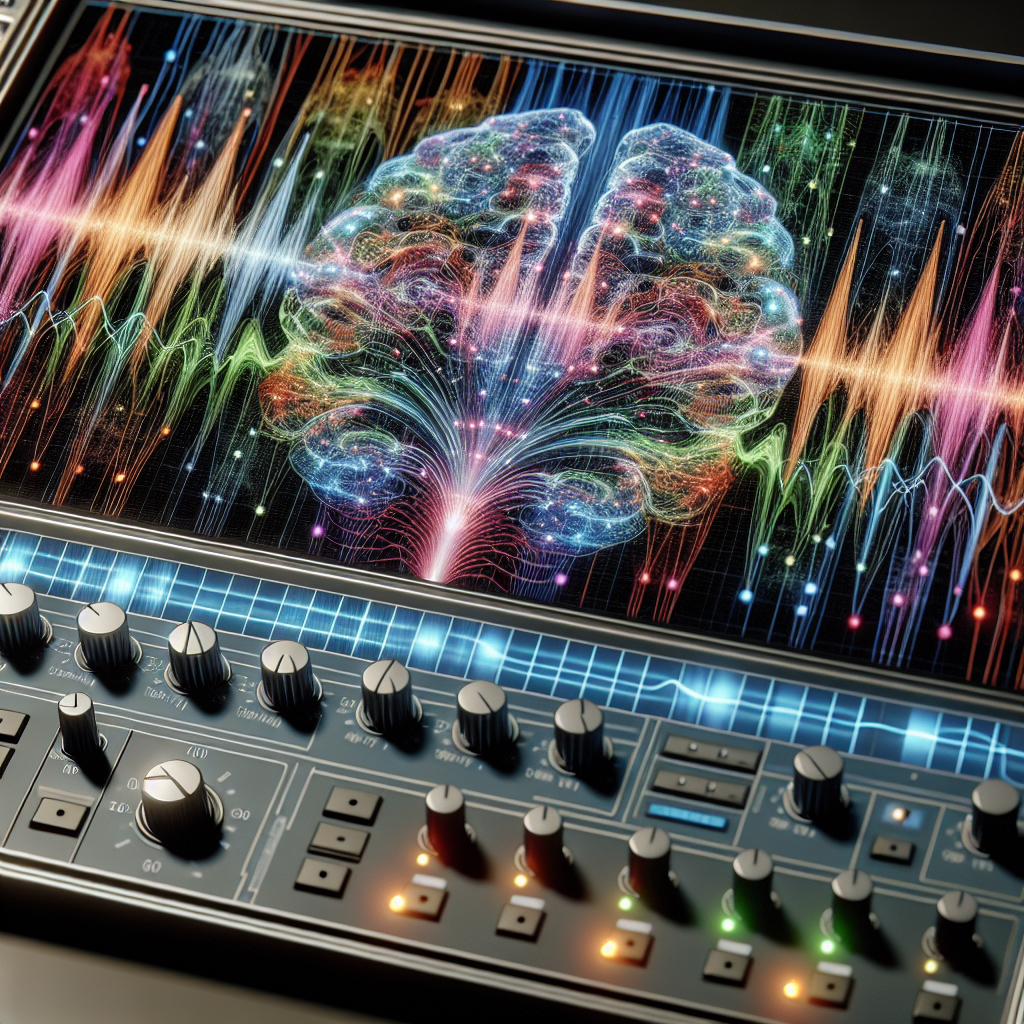In a world that is rapidly understanding the value of mental fitness, the quest for cognitive enhancement has led to the emergence of various science-backed methodologies. Among these, neurofeedback training stands out as a promising technique that harnesses the power of brainwave modulation to improve cognitive health. This article delves into the intricacies of neurofeedback training, exploring its benefits, mechanisms, and how it can be integrated into your wellness routine.
Understanding Neurofeedback Training
Neurofeedback, also known as EEG biofeedback, is a form of brain training that teaches the brain to function more efficiently. This non-invasive method involves monitoring brain activity through sensors placed on the scalp and providing real-time feedback to the individual. By observing their brainwave patterns on a screen, users can learn to control and adjust their mental states, leading to improved cognitive function.
The principle behind neurofeedback is rooted in the brain’s natural plasticity – its ability to reorganize itself by forming new neural connections throughout life. By reinforcing specific brainwave patterns, neurofeedback training can potentially enhance focus, reduce anxiety, and improve various aspects of cognitive health.
The Role of Neurofeedback in Cognitive Health
Cognitive health encompasses several aspects of brain function, including memory, attention, problem-solving skills, and the ability to process information. Maintaining and enhancing these functions is crucial for overall well-being and successful aging. Neurofeedback training offers a unique approach to cognitive health by targeting the electrical activity that underlies all brain functions.
Research has shown that neurofeedback can be particularly beneficial for individuals with attention-deficit/hyperactivity disorder (ADHD), as it helps to normalize brainwave patterns associated with focus and attention (source). Moreover, it has been suggested that neurofeedback may also have positive effects on memory and executive functions, which are vital for day-to-day decision-making and planning (source).
Integrating Neurofeedback with Other Cognitive Health Strategies
While neurofeedback training is a powerful tool on its own, it can be even more effective when combined with other cognitive health strategies. For instance, engaging in regular physical exercise is known to boost brain function and protect against cognitive decline. Similarly, mindful meditation has been associated with increased gray matter density in regions of the brain involved in learning and memory.
Diet also plays a critical role in cognitive health. Incorporating probiotics into your diet can influence brain function and mood by impacting the gut-brain axis. Additionally, a diet rich in antioxidants and omega-3 fatty acids has been shown to support brain health and may enhance the effects of neurofeedback training (source).
The Science Behind Neurofeedback
Neurofeedback relies on the concept of operant conditioning, where the brain is rewarded for producing desired brainwave patterns. Over time, the brain learns to generate these patterns more frequently, leading to long-lasting changes in cognitive function. The process involves several steps:
- Baseline Assessment: An initial evaluation is conducted to determine the individual’s typical brainwave patterns and identify areas for improvement.
- Real-Time Feedback: During training sessions, the participant is provided with visual or auditory feedback based on their brain activity.
- Reinforcement: Positive reinforcement is given when the desired brainwave patterns are produced, encouraging the brain to adopt these patterns.
- Consolidation: With repeated sessions, the new patterns become more stable and can lead to improved cognitive performance.
Research has identified specific brainwave frequencies associated with different cognitive states. For example, theta waves are linked to relaxation and creativity, while beta waves are tied to alertness and concentration. By targeting these frequencies, neurofeedback can help individuals achieve the desired mental state for optimal cognitive function.
The Benefits of Neurofeedback Training
Neurofeedback has been studied for its potential benefits in various cognitive domains:
- Attention and Focus: By promoting the production of beta waves, neurofeedback can help improve attention span and concentration in individuals with ADHD and in the general population.
- Memory Enhancement: Training the brain to maintain a state conducive to learning and memory can potentially improve both short-term and long-term memory retention.
- Stress Reduction: Encouraging the production of alpha waves through neurofeedback can promote relaxation and reduce stress, which in turn benefits overall cognitive health.
- Mood Regulation: Neurofeedback has been observed to help in the management of mood disorders by normalizing brainwave patterns associated with emotional regulation.
Challenges and Considerations
While neurofeedback shows promise, it’s important to approach it with realistic expectations. The effectiveness of neurofeedback can vary from person to person, and it is not a standalone cure for cognitive issues. It should be seen as a part of a holistic approach to brain health, which includes dietary strategies, physical activity, and mental stimulation.
To ensure the best outcomes, it’s crucial to work with trained professionals who can tailor the neurofeedback sessions to your specific needs. Additionally, maintaining a consistent training schedule is key to achieving lasting cognitive improvements.
Conclusion
Neurofeedback training offers an innovative way to enhance cognitive health by tapping into the brain’s inherent adaptability. With its potential to improve attention, memory, stress levels, and mood, it represents a valuable addition to the cognitive health toolkit. When combined with a supportive lifestyle that includes a healthy diet, regular exercise, and mental engagement, neurofeedback can be a powerful ally in the journey toward optimal brain function.
For those interested in exploring the world of neurofeedback further, it is recommended to consult with healthcare providers who specialize in this field. Additionally, resources such as the International Society for Neurofeedback & Research provide valuable information and can help locate qualified practitioners.
By embracing neurofeedback and other cognitive health strategies, we can take proactive steps toward enhancing our mental acuity and overall quality of life.



